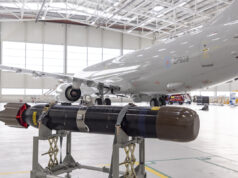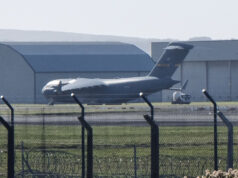The attack on Parsons Green tube station in London on the 15th September 2017 with a explosive device detonated on a tube carriage is a reminder that terrorism presents a clear and present danger to the interests of UK national security.
Furthermore, the UK terror threat has increased from severe to “critical” meaning that another terrorist attack is imminent. ISIS has claimed responsibility for the attack.
Further investigation by the police and security force will yield the full extent of ISIS links with this attack. However, there has been a trend this year of terrorist attacks that have either been inspired by, or linked to, ISIS on UK soil in Manchester and London. This has been the most dangerous year in terms of the amount of terrorist attacks committed in recent history.
This year, we have witnessed 5,000 British Army troops deployed on the streets of UK cities under Operation Temperer after the devastating attacks in Manchester earlier this year. Prime Minister Theresa May chaired a COBRA meeting to discuss this latest terrorist attack which is generally held in one of the cabinet offices in London. These meetings are tasked as part of crisis coordination with heads of the police, military and senior ministers.
In addition, we are likely to see this operational use of troops used in the same way again in light of the attack on the London tube network on the 15th September 2017 to protect civic centres and also free up police forces and personnel to use in other duties. However, for a proper counter-terrorism response, there needs to be an overarching strategy which connects the domestic and international arenas of counter-terrorism together into one cohesive strategy.
This means locating the threats from ISIS bases in the Middle East, and destroy their zone of operations while also increasing domestic security at home, interdicting terror financial networking, recruiting and bomb making. In addition, the police along with security forces need to address the causes of extremism, and tackle the extremist ideology that ISIS propagates. Air power alone is not sufficient in tackling ISIS, and more needs to be done both militarily and in terms of expanding operations.
National Security experts such as Fred Kaplan have argued that air power alone cannot win this conflict, and advocated use of local ground forces to properly destroy ISIS militarily. In addition, military commanders and political leaders both in the UK and elsewhere should investigate the authorising of special forces in Iraq and Syria in order to dismantle and destroy ISIS.
These special forces would be tasked with taking out key ISIS commanders, as well as disrupting communications, supply lines, financing, and also bases. We already know that US Special forces are in operation in Syria. This should be expanded to its fullest potential and the UK to work alongside its allies.
On a wider geopolitical level the latest campaign against ISIS is part of this generational struggle of a globalised war on Jihadist terrorism. Failure to properly combat ISIS, will mean that the balance of power will inevitably shift towards the terrorists who are well armed, well equipped and well financed. Although they are in retreat, this has emboldened them to carry out attacks in European countries and go on the offensive. Therefore, although ISIS has lost territory in both Iraq and Syria, it still has the capability of launching terror attacks and recruiting followers both at home and abroad. Its very existence provides a threat to UK national security
The Coalition’s counterinsurgency against ISIS must combine air with ground power, with the political aim of strengthening the Iraqi government and providing both military and development aid. Air attacks must be expanded in Syria and be surgical with the inclusion of ‘special forces’ used when necessary to eliminate key ISIS commanders. A ‘kill or capture’ policy should be introduced such as what was found in the Afghanistan strategy was under Barack Obama with the increased use of Drones, but in this case with the use of Special Forces as well.
When the world is becoming more dangerous, and we are entering a new period of threat from terrorism, the UK must be prepared to deploy its forces accordingly and eradicate the threat from terrorism. Britain should be at the forefront of this global fight against terror and should encourage others to take their part.













I think you are drawing on the premise of Isis made up plans and coordinating some strategic level of attack on the UK. I don’t for one minute believe that to be true. Ten seconds before that tube fire Isis wouldn’t know anything. If “you” went out and blew up a telephone box tomorrow Isis are going to claim responsibility, of course they are, it builds on their fame and scope.
The past year we have had lone wolf attacks by random types who want to do their but for some idolohical cause, but it’s not linked, it really isn’t.
Common sense analysis on group attacks in London show that with a number of guys you can really do serious damage. Imagine your Mosque, and I’m going to stereotype Muslims here as they “choose” to claim fame for attacks, imagine your group has as few as eight people. The London attack, Paris, and others, were all grouped in one spot. Eight individuals who have no ambition of surviving their actions can do truly immense damage, and yet they don’t. A terrorist isn’t interested in one death or six, it’s a waste of a soldier, they want hundreds.
A friend and I were discussing this the other day, and in a brief car journey I explained how a team of 12 could cause up to 5000 deaths and close down a fifth of the UK in one hour. This was without half thinking about it. If Isis had true aims on Britain it could certainly manage it…the only reason it doesn’t, is because it doesn’t want to. It’s not short of volunteers.
Troops deployed on streets is entirely a media stunt. There hasn’t ever been a follow up attack, and placing a milion soldiers on streets won’t stop a random act of “man in van” attack. The government needs to be seen to do something, and that’s what they came up with. If I was an advisor to COBRA I would support it. It’s good training for the troops, builds public confidence and is a good drill for if something really serious happened.
In 2015 we had 1700+ deaths in road traffic accidents in the UK, so long as lone wolf attacks number in the tens, they really are a very low priority. The real danger is the boost our media gives to each of these stories.